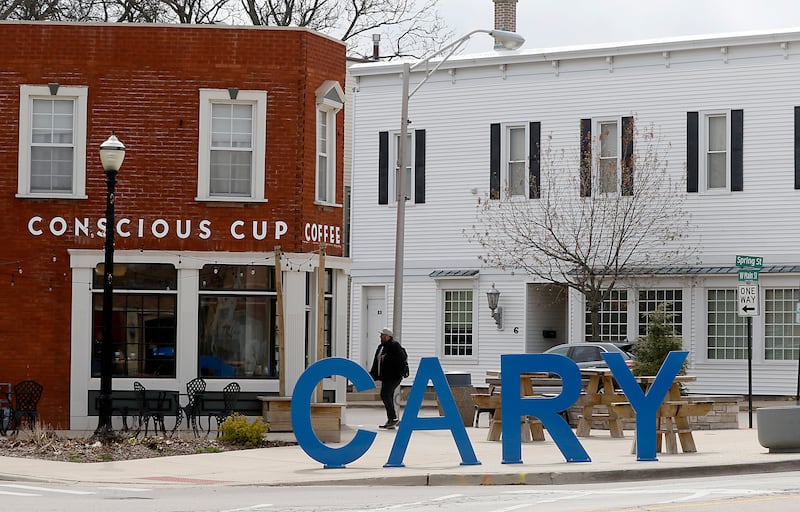Cary officials have approved both a non-home-rule general sales tax and the continuation of a 1% grocery tax for next year.
Both taxes are set to start Jan. 1. Village trustees unanimously approved them in a consent agenda vote Tuesday. In total, both taxes are estimated to bring in $1.35 million, and officials plan to use the money to fund public infrastructure.
Many municipalities have made the move to a local 1% grocery tax after Illinois Gov. JB Pritzker and state lawmakers voted to remove the statewide tax last year. The tax, although implemented by the state, funded local municipalities.
Losing the 1% grocery tax would have taken away an estimated $600,000 from Cary’s budget, according to village documents. Multiple municipalities in McHenry County have signed up to continue on the grocery tax including Algonquin, Huntley, McHenry and Fox River Grove.
“We have a road fund that’s not sustainable,” Cary Mayor Mark Kownick said at a previous meeting. “We’ve got $65 million worth of projects that are unfunded to date over the next decade or so, so we’re going to try to do what we can to maintain our current level of funding without being such a burden on our residents.”
Currently, Cary’s annual Motor Fuel Tax revenue of $750,000 falls far short of the estimated $2.75 million per year required to hit a “satisfactory” level with roads and other public infrastructure systems, according to village documents.
Municipalities that wish to continue with a local grocery tax without any lapses in revenue must file an ordinance with the Illinois Department of Revenue by Oct. 1.
Separately, Cary officials added a 1% non-home-rule general sales tax, too. This tax was approved by the state legislature, allowing non-home-rule communities to implement a local sales tax of up to 1%, in 0.25% increments, without a referendum. Historically, non-home-rule communities had to get voter approval to enact a local sales tax. Last year, Cary voters by a wide margin rejected a village bid to become a home rule community. The village had hoped to enact a 1% sales tax with that home-rule authority, had the referendum passed.
The village estimates the 1% general sales tax would bring in an extra $750,000 annually, according to village documents. Currently, the village does not have a general local sales tax. Local shoppers currently pay a total of 7.25%.
Categories subject to the sales tax include general merchandise, apparel, furniture, lumber, building and hardware, automotive and gas stations, agriculture and manufacturers. It does not apply to necessities such as medical prescriptions, medical equipment and food.
